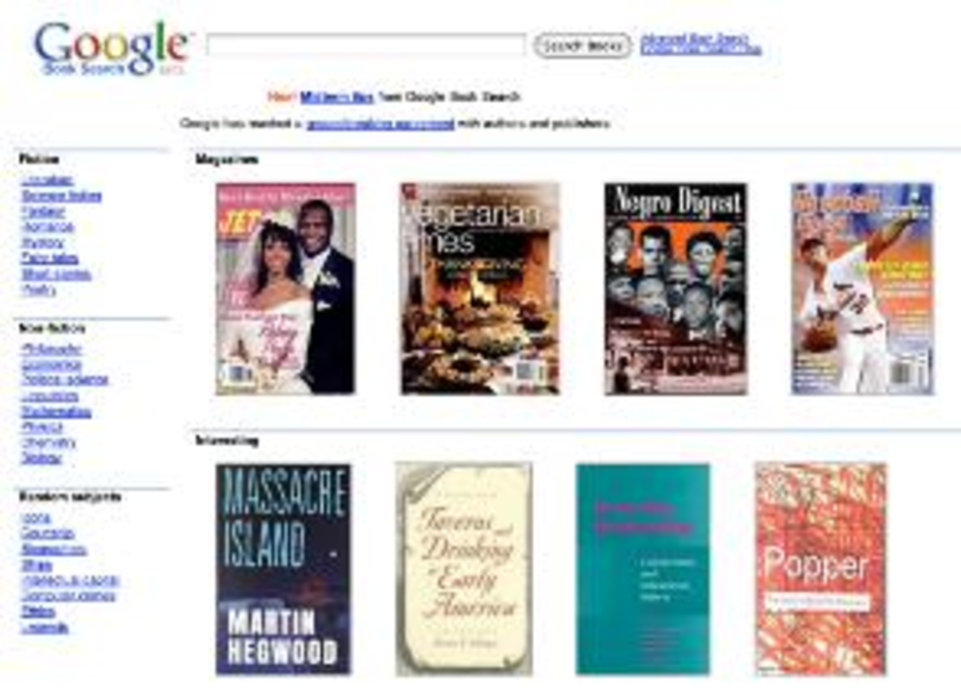As part of last year’s class-action settlement with groups of authors and publishers, Google has launched a worldwide print legal notice campaign targeting owners of book copyrights. Per the settlement, Google had to inform copyright holders in a way that was considered by the courts to be “reasonable and practicable,” which basically means buying a print ad in every country.
The settlement followed a lawsuit, which alleged that Google’s plan to digitize books violated the rights of copyright holders.
Due to the size of the undertaking — by some reports Google is shelling out $8 million on the print and online campaign as part of the $125 million settlement — the question of monetization arises. How much of a difference will a robust Google Book Search make to Google’s overall market share? “When someone goes to Google, they’ve got a question in mind and an answer they need,” Jennie Johnson, a Google spokesperson told DMNews. “We don’t really care where [on the Web] that answer comes from. If it comes from a book, great; if it comes from a Web page, fine.”
The focus, she pointed out, is providing a great user experience, and to do that, Google needs to bring more of the world’s information — including books — from offline to online. “This will better our search engine,” she says.
“The story here is that Google is actively exploring ways to monetize any additional landscape,” says Mark Simon, VP of industry relations for digital agency Didit. “Google needs new outlets beyond the ‘traditional’ search results page, particularly in light of [Google CEO] Eric Schmidt’s recent comments that Google is ‘not immune’ to the current economic downturn.”
There’s no compelling opportunity for advertisers aside from ads within paid search results — yet, according to James McQuivey, VP and principal analyst at Forrester Research.
“To have an impact on book reading, Google would have to have a way to connect the book search experience to the book reading experience — and reading would likely be paid, not ad-supported,” he says.
McQuivey cited a parent of a teenager searching for parenting advice online in which Google’s natural search returns an excerpt from a parenting book within Book Search. “A whole host of publishers and services would want to show up not only in the [natural] search results, but in the ads around the results. When it’s time to offer you a book, retailers and publishers alike — including Amazon — would like to be able to say, ‘click here to queue this book up in your eBook reading list,’” he says. “That’s a very focused kind of advertising opportunity that we’ll eventually have.”
This will not happen for some time, McQuivey notes, because publishers are “still wary of Google, and Google has no connection to [the] Kindle or any other convenient reading solution.”
Sponsorship is possible, says Mark Schwartz, managing partner of Steak.
“Marketers could offer to sponsor a particular author, title or genre that matches their core audience,” Schwartz says. “That sponsorship could then allow Amazon or Google to offer the download to the consumer for free, and the marketer will get ad placement throughout the e-book.”
He likened the idea to the Hulu model, where advertisers can embed ads within videos. Beyond full sponsorship, Schwartz says, advertisers might sponsor aspects of a book or periodical that best matches their offering to a consumer’s interest.
Google obviously is not the only company getting into the e-book trade. There’s the new Kindle 2, the iPod Touch and now, even the iPhone has a Kindle application.
Google has looked at running pay-per-read or pay-per-download, ideas that split income with copyright holders of downloaded books, says Simon, and could compete with the Kindle and the iPhone reader.
“Just as important, though, is the fact that a service like this may lay the groundwork for revenue sharing in other media — like partnerships between Google News and the news sources it tracks, a move that would help both Google and the ailing news business,” Simon says.








